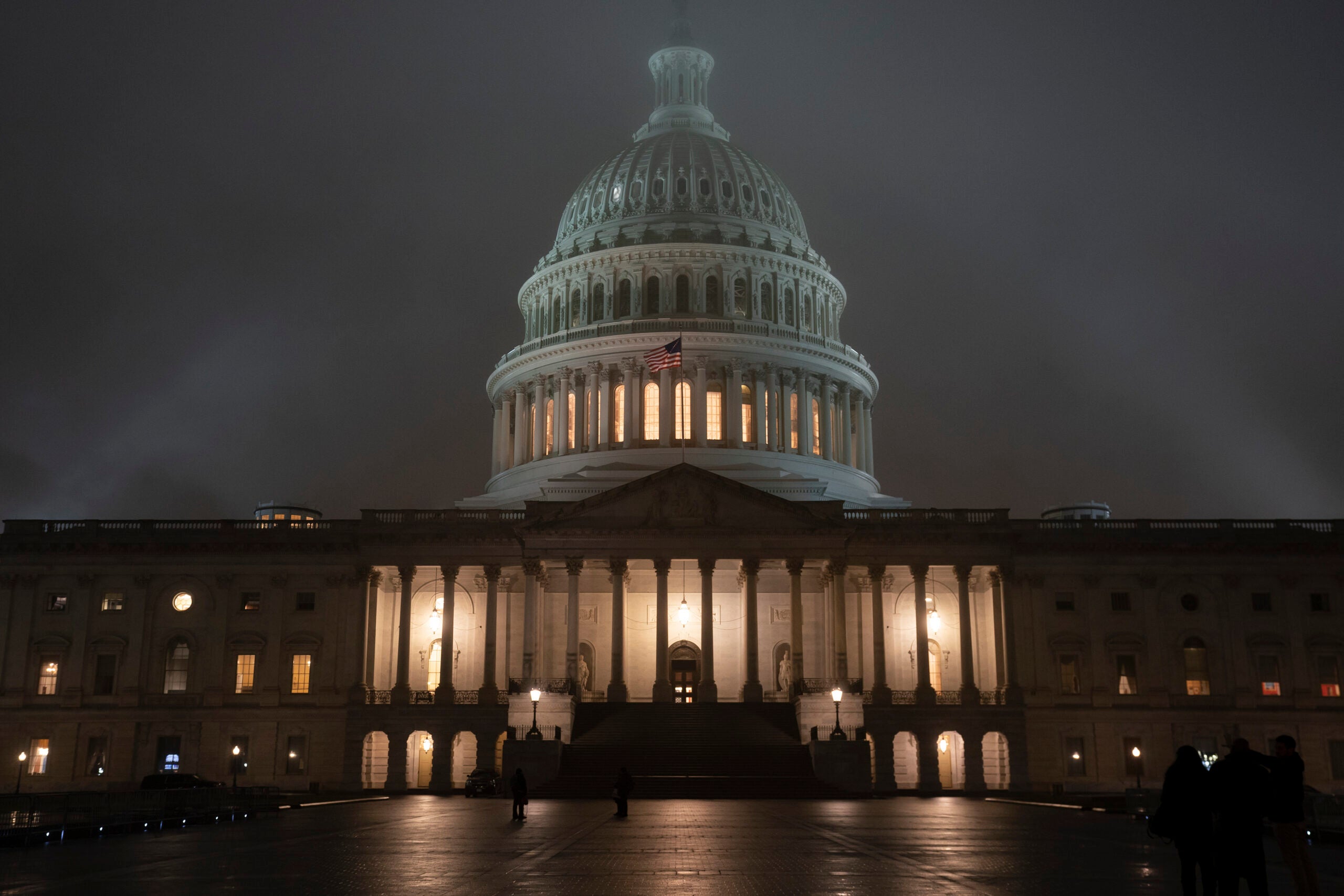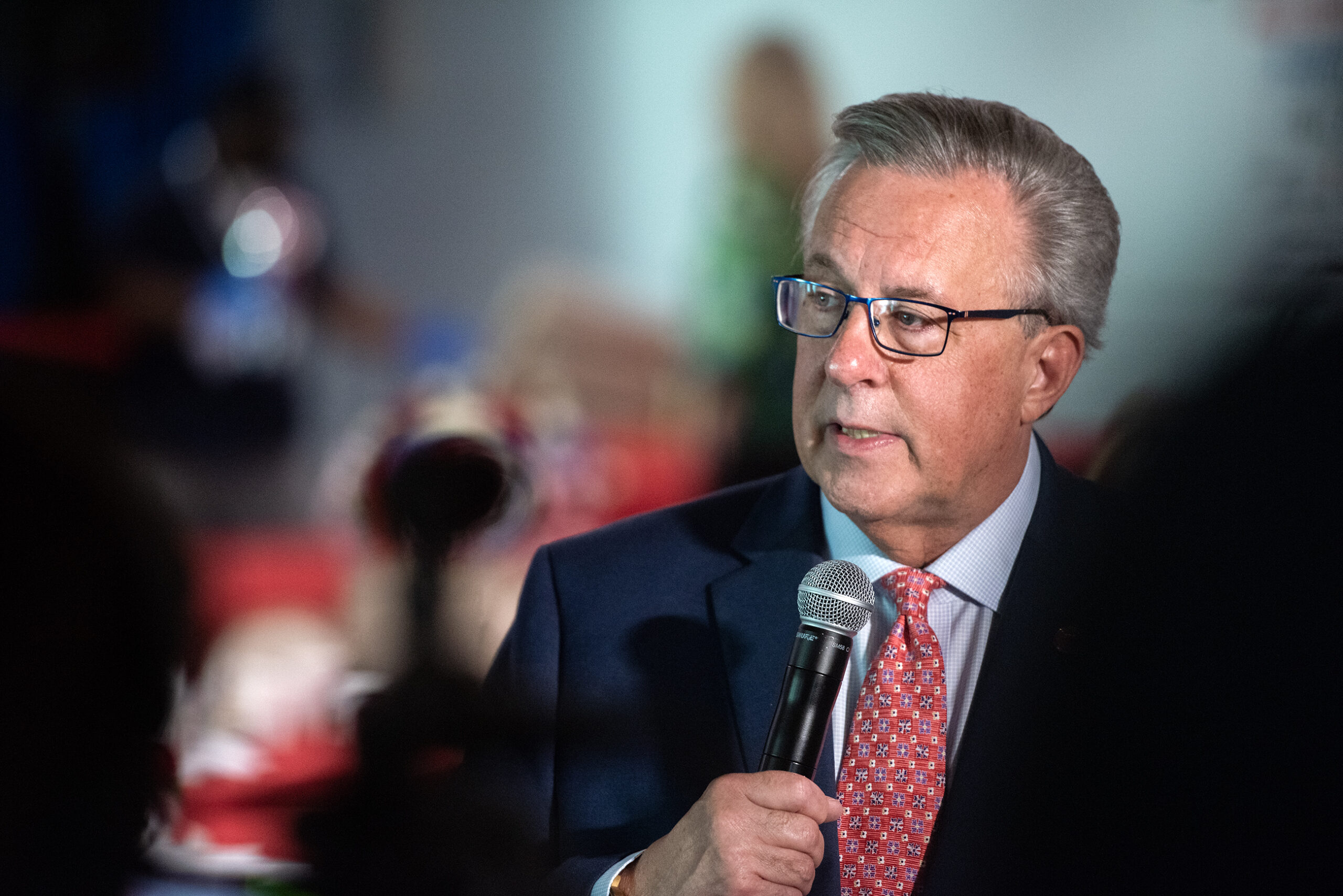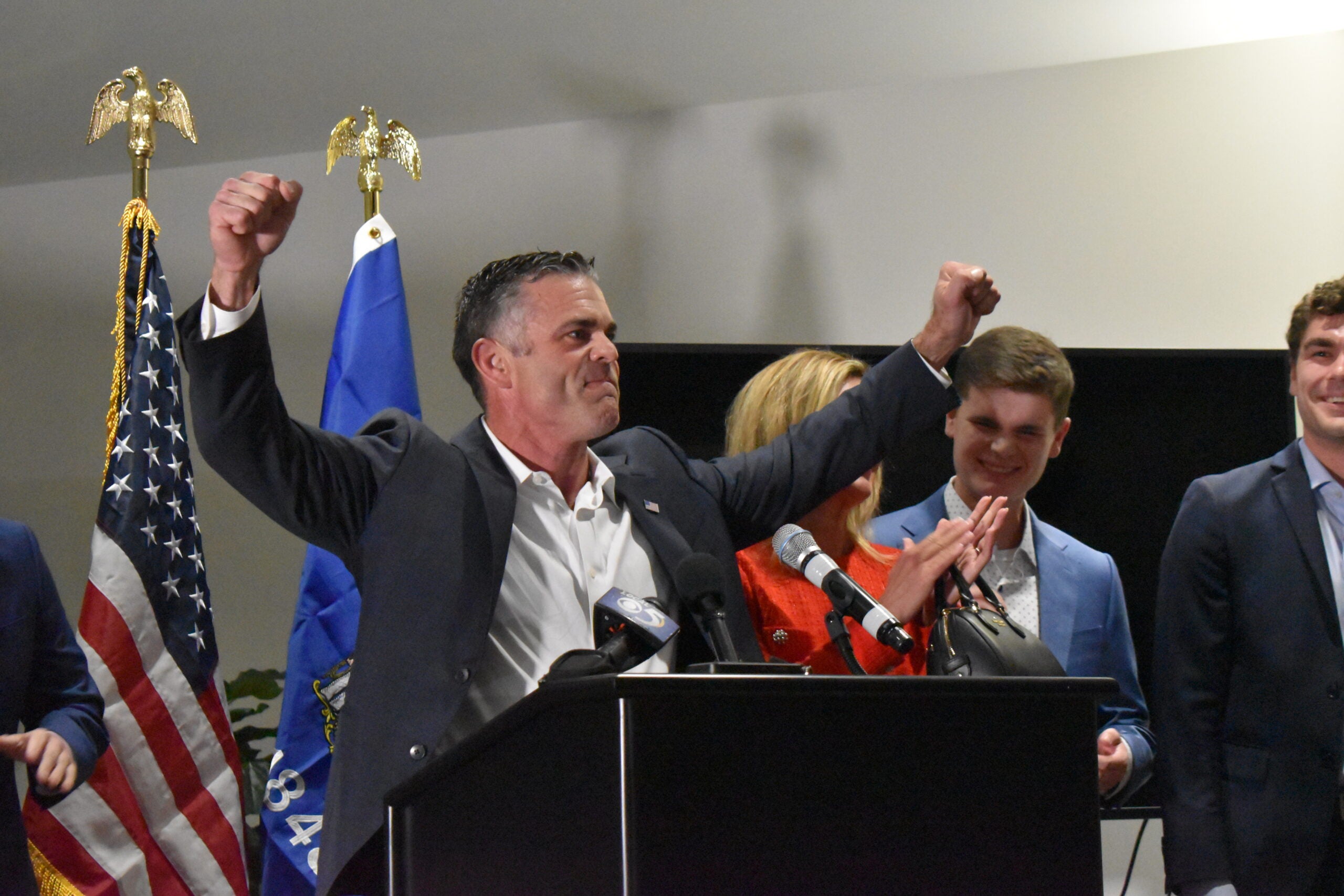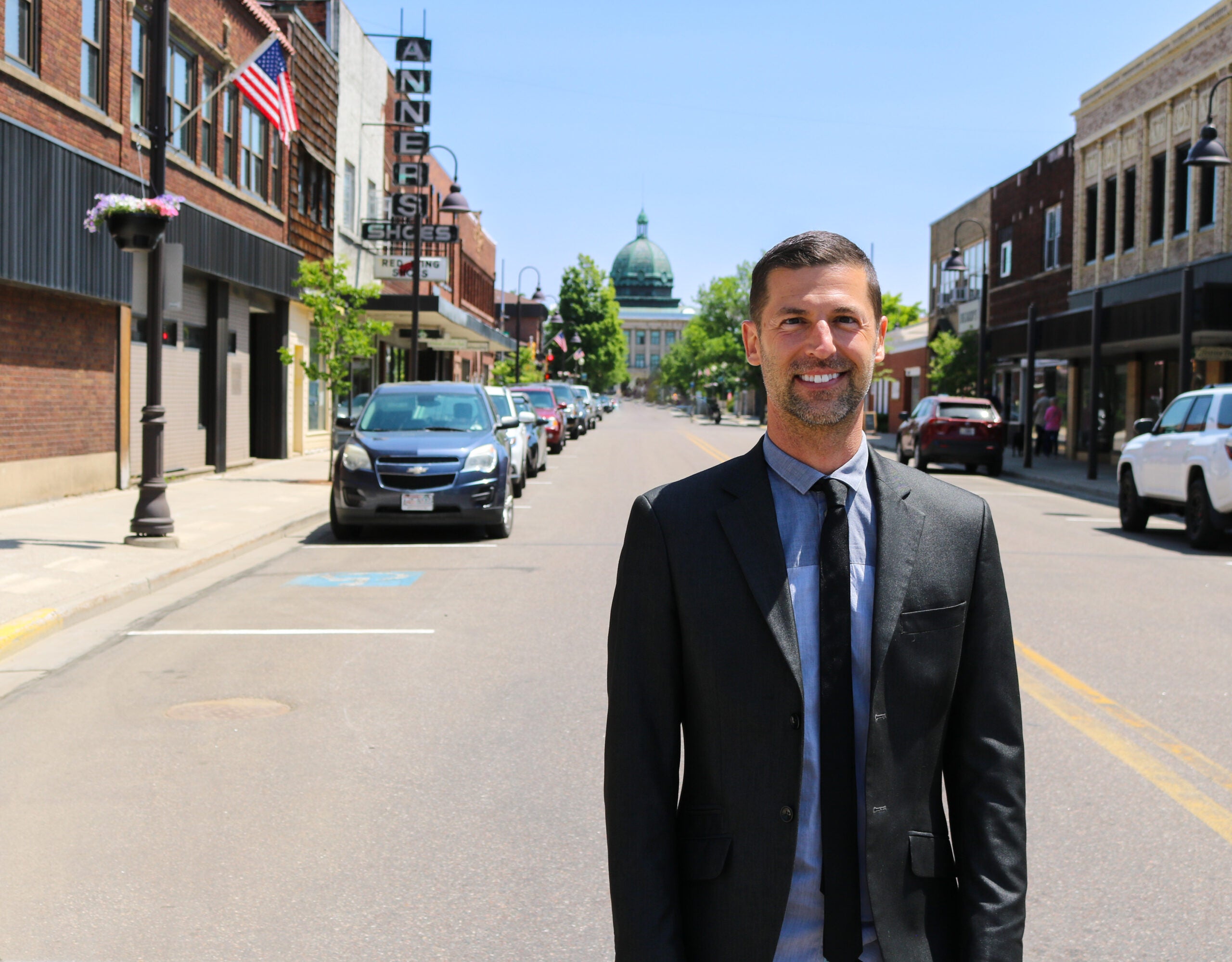A Wausau School Board president will face a longtime state senator in a special election in one of Wisconsin’s most conservative congressional districts.
Democratic nominee Tricia Zunker, a Ho-Chunk Supreme Court justice who is also president of the Wausau School Board, won easily over Lawrence Dale, who did little to campaign for the nomination. With 99 percent of the vote counted, Zunker had 89 percent of the Democratic vote.
State Sen. Tom Tiffany of Minocqua will be the Republican nominee. Tiffany was elected to the state Assembly in 2010, and to the state Senate in 2012.
Stay informed on the latest news
Sign up for WPR’s email newsletter.
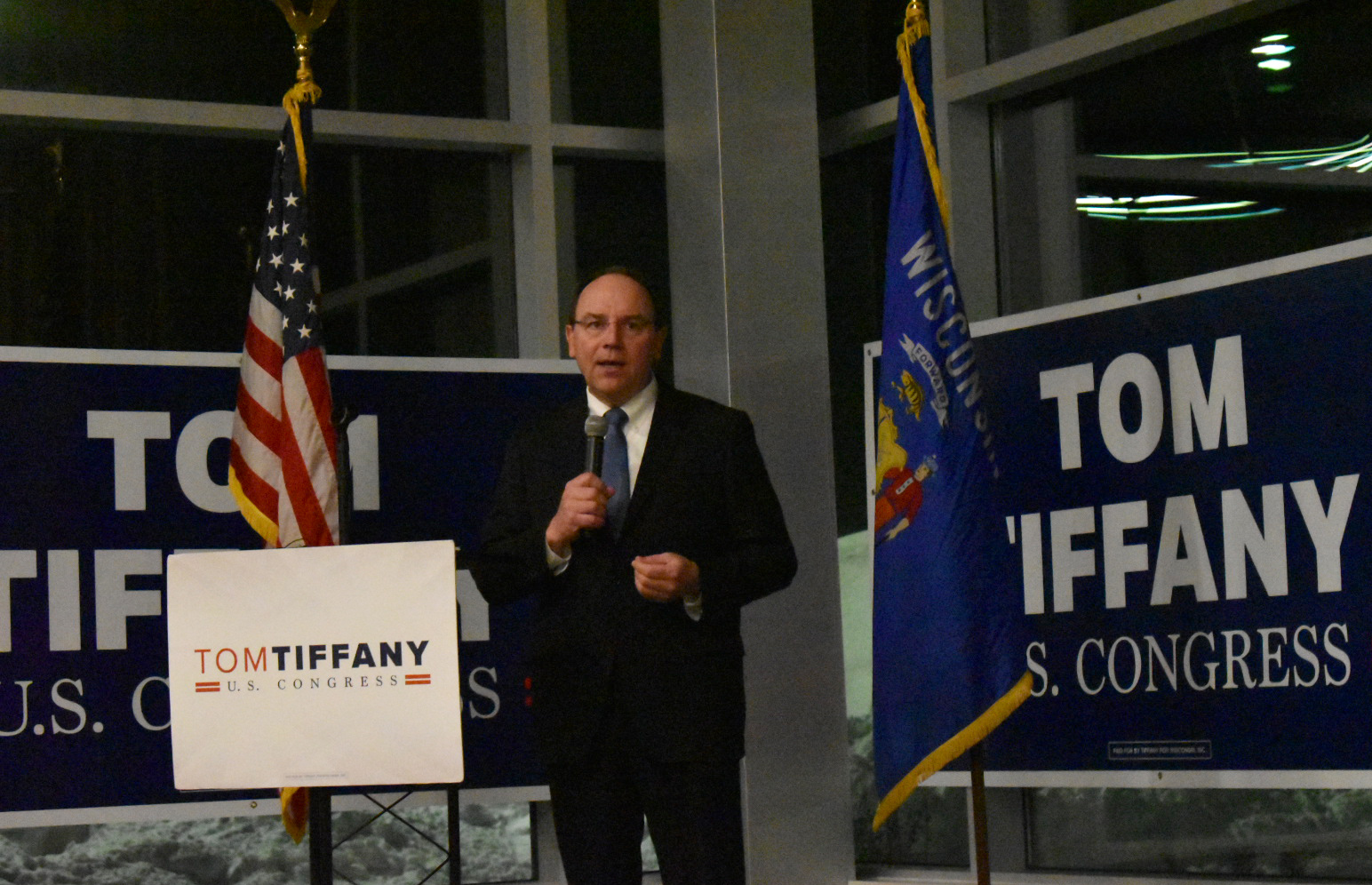
Tiffany faced a strong and well-funded challenger in political newcomer Jason Church, an Afghanistan War veteran and former staffer for Republican U.S. Sen. Ron Johnson. Church ran as an outsider who boasted he had supported President Donald Trump “since day one,” a contrast to Tiffany, who endorsed U.S. Sen. Ted Cruz in the 2016 presidential primary.
But Tiffany consolidated the support of the Republican Party establishment, securing endorsements from former U.S. Rep. Sean Duffy, former Gov. Scott Walker and other leaders, as well as important conservative advocacy groups such as the National Rifle Association.
Church had 42 percent of the Republican vote with 99 percent of precincts reporting to Tiffany’s 58 percent, enough for the Associated Press to call the race shortly before 10 p.m.
In a speech at his victory party in Rib Mountain, Tiffany said he’d bring his legislative experience to Congress.
“That same common sense that we’ve brought to Madison, they need a dose of it out in Washington, D.C.,” he said. “That’s why every day, I will fight socialism, and I will defend freedom.”
Tiffany and Zunker will now square off in the May 12 special election, which was called late last year after Duffy announced his resignation from Congress for family reasons.
RELATED: Daniel Kelly, Jill Karofsky Emerge From Supreme Court Primary
Zunker becomes the first Native American congressional candidate in Wisconsin since Ada Deer ran in 1992. If elected, she would be Wisconsin’s first Native American representative, and only the third Native American congresswoman in the nation’s history.
In her victory speech in Wausau, Zunker emphasized the historic nature of her candidacy.
“We are one step closer to sending the first Native American to represent Wisconsin in Congress and the first woman ever to represent this district,” Zunker said.
Zunker said she will advocate for rural Wisconsin, and said a message of standing up for farmers, advocating for affordable health care and lowering prescription drug costs are messages that can resonate across party lines. Still, she will enter the general election as an underdog in the conservative stronghold district.
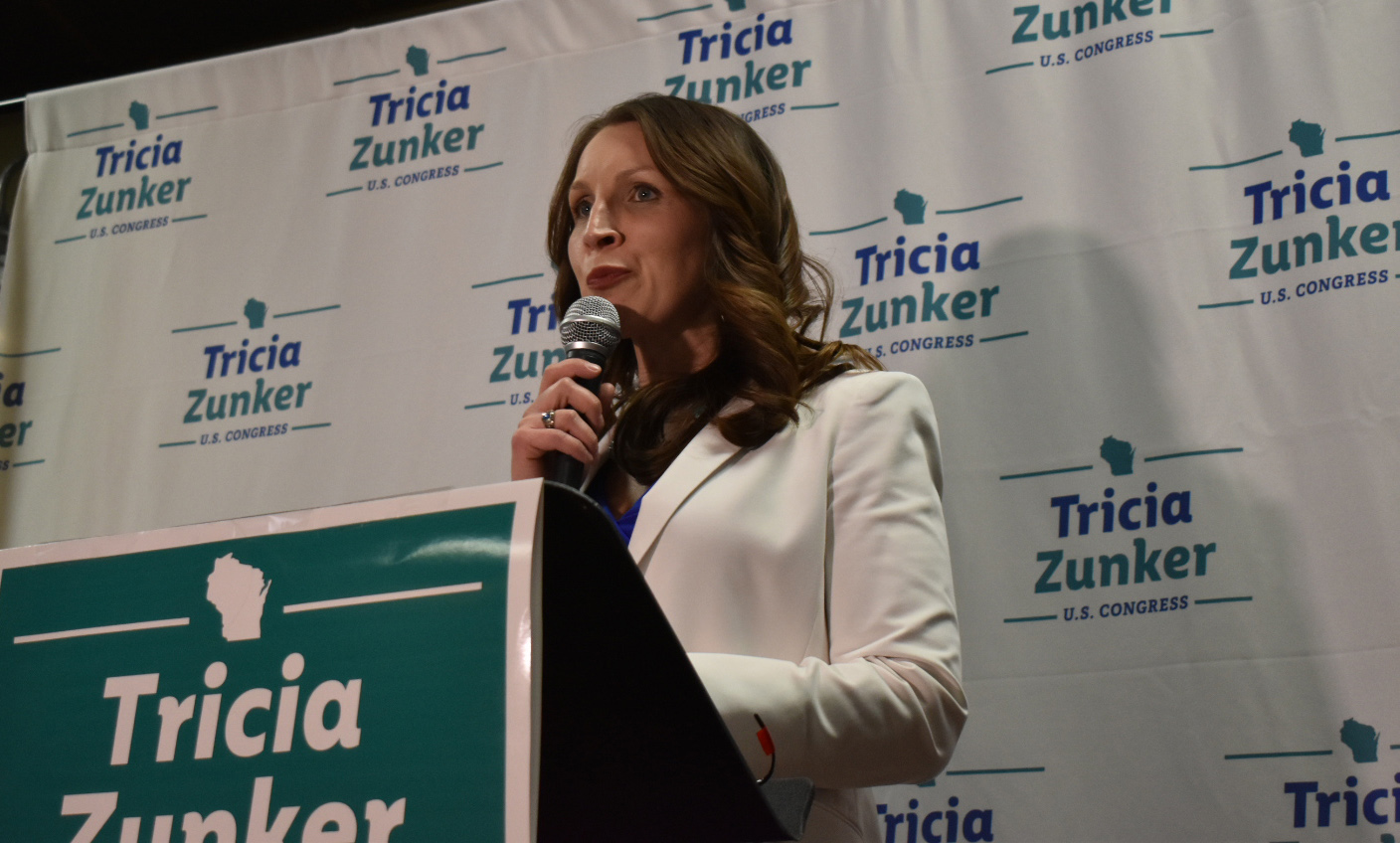
Tiffany has raised more than $719,000, and had $208,000 on hand as of Jan. 29, according to federal disclosures. Zunker, who has pledged not to accept donations from political action funds, has raised $145,000, and had $64,000 on hand.
Meanwhile, outside spending groups have already poured some $2.8 million into the race, all of it aimed at influencing the Republican primary, according to the watchdog site Political MoneyLine. Those groups are conservative advocacy organizations, and they can be expected to now turn to attacking Zunker in the general election.
The 7th Congressional District, which is mostly rural and encompasses central and northwestern Wisconsin, gave Trump his highest voting margins in the state in 2016. Trump won the district by more than 20 points, securing about 58 percent of the vote to Hillary Clinton’s 37 percent. Democrats gained ground there in 2018, as U.S. Sen. Tammy Baldwin secured 48 percent of the vote in the district and Gov. Tony Evers got 41 percent against Walker.
Because of Wisconsin’s status as a swing state in the 2020 presidential election, the May special election is expected to be closely watched for signs of strength or weakness in Trump’s re-election campaign. Trump needs large margins of victory in Wisconsin’s rural areas to win the state, and the race is seen by many as a test of Democrats’ ability to reach rural voters.
Wisconsin Public Radio, © Copyright 2025, Board of Regents of the University of Wisconsin System and Wisconsin Educational Communications Board.
